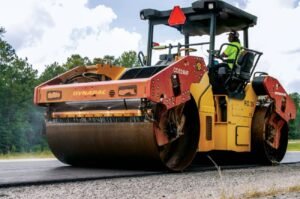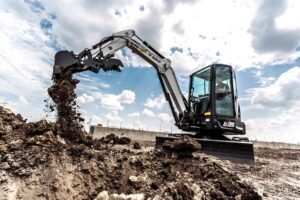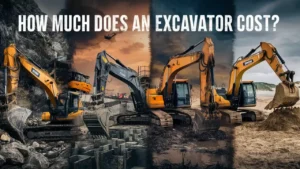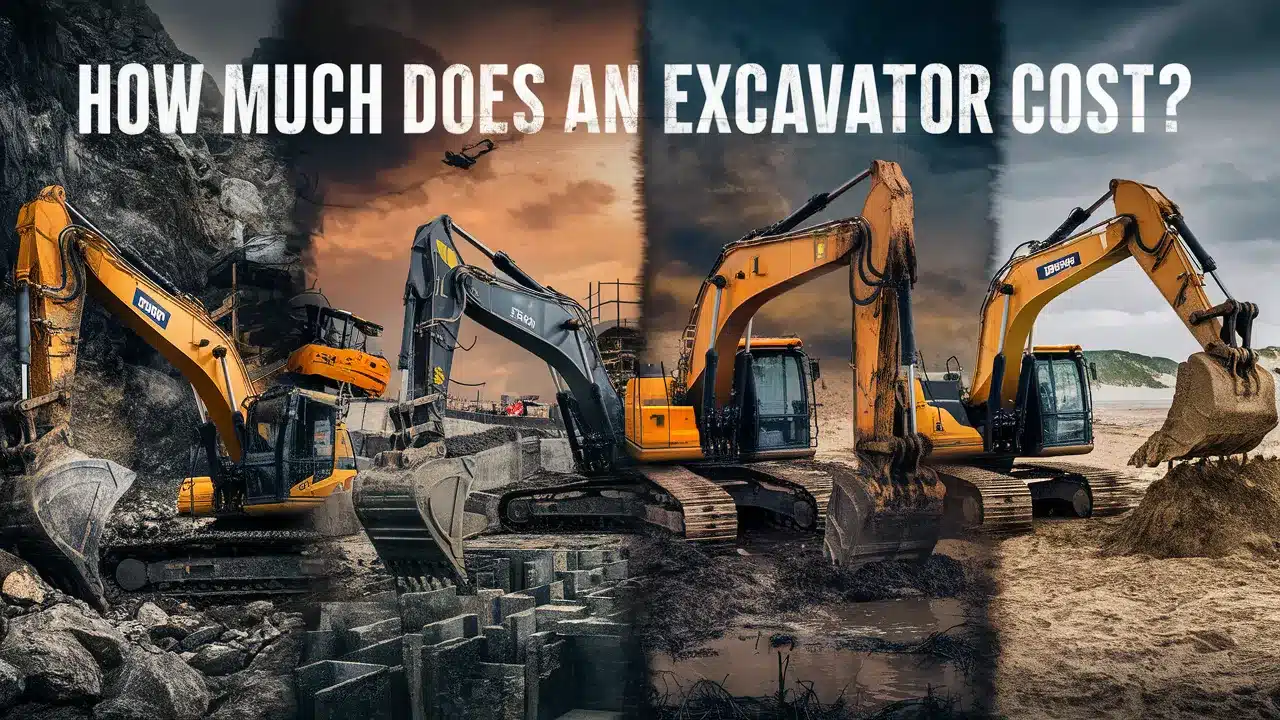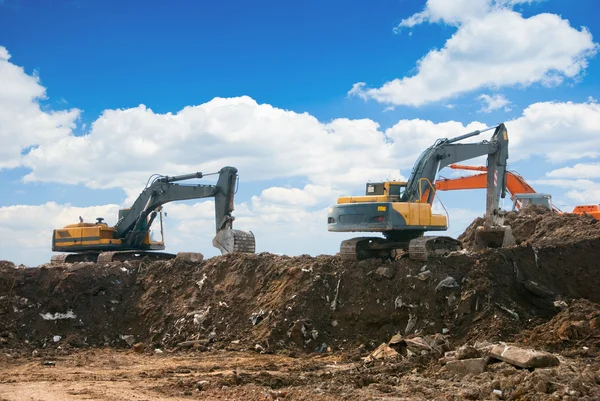save you a lot of money, but the process can be trickier than purchasing a new roller since you can’t be certain of any hidden defects, and the people selling them aren’t usually roller companies or dealers. If you don’t do your due diligence, you’ll either waste your money or live in a world of frustration. The purpose of this book is to equip you with the tools to make a good purchase and get a roller you can use for your projects.
Buying a second-hand roller requires detailed evaluation of its condition, brand, and supplier. It’s essential to conduct a thorough inspection, verify its maintenance history, and ensure it meets your project’s needs. By partnering with trustworthy suppliers and understanding the specifications, you can avoid risks and get the best value for your investment.
Buying a second-hand road compactor or roller is a great option, and only people with specific needs will opt for a new one. Here I will explain in detail everything you need to know to buy a second-hand roller.
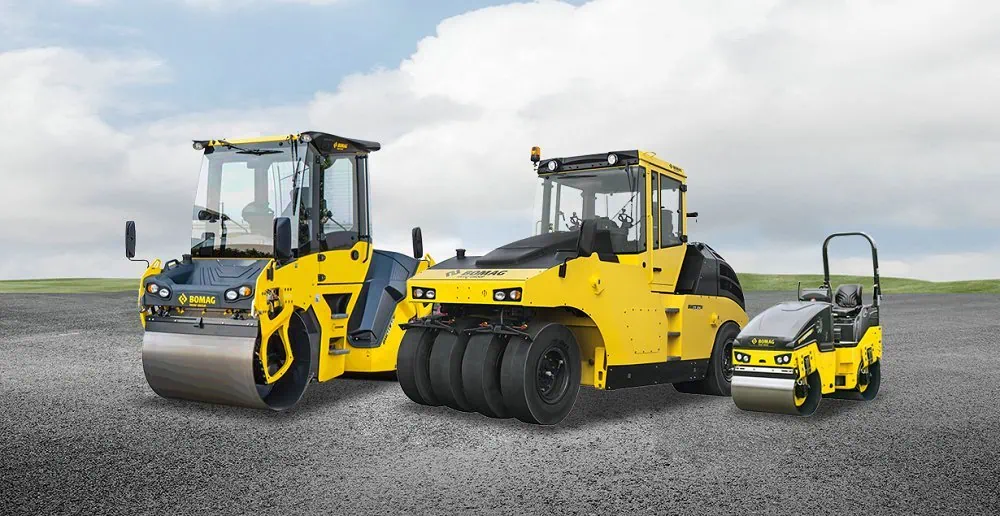
جدول المحتويات
تبديلWhat Are the Benefits of Buying a Second-Hand Roller?
Buying a second-hand roller will offer a lot for your business—for anybody who wants to save some money at the same time as they need this work done. One big thing you’ll save is money. You can usually buy a used roller for half the price of a new one. That makes it a great buy for a company that has limited cash on hand or just has a short-term job.
Also, if you buy a used roller, it is usually there and available. If you buy a brand new one, you may have to wait for somebody to build it and ship it to you. That process always takes more time than you think. All the while, you’re trying to run your business, and you need this piece of equipment. Generally, a used roller has a history of reliability.
If it has been used in a number of jobs, it probably has some proven ability to run for you if it has been
maintained. This marketplace has the widest variety for business owners to choose from because there are lots of rollers that are older models and/or no longer made that fit your particular use.
How to Evaluate the Quality of a Second-Hand Roller?
One of the most important things to do when buying a used roller is to kick the tires and evaluate the machine’s quality. First, do a physical evaluation of the machine, Look at the drum for cracks or damage, check the frame for excessive rust, and look for leaks in the machine’s hydraulic system. Any visible signs of damage indicate there’s an issue. For example, a hairline crack in the drum may be a sign of a major problem. You can look for similar issues on the frame and the hydraulic system.
Also, ask for the maintenance records and look at them closely. A machine with maintenance records and regular service is a lot better buy because you know it’s been maintained. You want the ability to see the maintenance record, to check oil changes, service, and part replacements that might have been needed. If
somebody doesn’t have maintenance records, that’s a big variable to be aware of when buying the piece of equipment.
Another thing to do is run the machine. If it’s supposed to vibrate, make sure it vibrates. Run the machine and see how the engine sounds; how it vibrates; how it turns; how it brakes; and how it does everything. Test every function on the roller and listen for any unusual noises. The last thing you want is to buy the machine and find out it takes a half-second delay in the machine running or that the brakes don’t work after you buy it.
Lastly, read the hour meter. It is a real meter with real hours. Machines with less hours are usually better buys than ones with more hours, but the flip-side is that maybe a machine with more hours is the better buy because it has been maintained and that maintenance will affect your purchase decision.

Which Brands of Second-Hand Rollers Are Most Reliable?
When you buy a used roller, the brand you buy is just as important as buying a car. Some brands are known to be well-made, hold their value and last a long time. Other brands are known to be junk right from the factory. CAT is at the top of the list for most people buying a used roller. Why? It is fabulously made, and CAT is good at making parts and backing up their product. Machines hold their value longer when they are CAT models.
Most people believe they are worth the most when you re-sell them whether this is true or not. XCMG has put a lot of good rollers in the marketplace for a very good price. They are in the sweet spot for most buyers. Most people think that they get a lot of roller for the price they pay. Sany is known for a well-constructed, difficult-to-wear-out machine that is much cheaper than most of its competition.
So, it is a good buy for a lot of people. Bomag and Dynapac are also well-known roller brands. Bomag is a fantastic roller with great technology and is well-constructed. Bomag has every trick you can think of for compaction technology. Dynapac is known as an easy-to-use, easy-to-repair, solid-as-a-rock roller. If you have a tough job, a Dynapac will help you get through it by not breaking down.
What Are Common Challenges When Buying a Used Roller?
Second-hand roller, as I said, are cost-effective. That said, buying used rollers—not just from me, but from anybody—raises concerns you need to be aware of.
Hidden Defects: The biggest concern with buying a used roller is the concern about hidden defects. When you look at a roller, everything looks fine because everybody cleans these machines up before they put them on the market. Most people don’t go and spill a bunch of oil and stuff all over them. But underneath all the shining and grooming might be some big problems that need repair.
Warranty: Used rollers don’t have a warranty. If something goes wrong right away, you’ve got to fix it. If your brand new roller has a warranty, the manufacturer will fix it for you. Incomplete Records or Falsified Documents: Most people hate having a maintenance schedule because it takes too much time or paperwork is not their thing. The bottom line is that good record-keeping is not something many sellers do. So,remember that all maintenance schedules and records are only worth what you can prove.
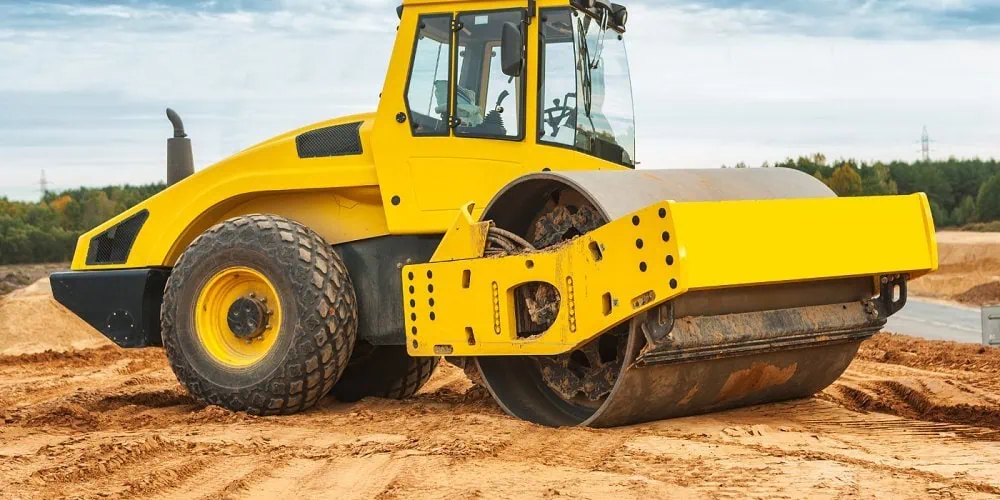
How to Choose the Right Supplier for a Second-Hand Roller?
The most critical issue is the supplier. Is the مزود honest? Do they do what they say they’re going to do? Are they going to deliver the machine they promise? Are you able to contact the people on their reference list and get answers about their machines, the delivery of the machines, and their honesty? Do your research. Don’t pay them in full upfront . Don’t pay them in full unless it’s someone you’ve been doing business with over the years, trust has been built in, and they’re going to give you a detailed order signed by them before any payment is made.
The excellent idea is to see if they will mail to you a list of their machines, an order for you to fill out, and a copy of their warranty. If they say yes, they will do that, then they are most likely honest. If they say no, they are most likely a scammer. The next one is you want to buy from the person who has the most machines for you to choose from so you can compare makes, models, ages, etc.
Then pick the one who has the most choices for you to pick from.Finally, the supplier needs to do a good job to help you get the machine you want to show up overnight. Moreover, don’t forget that customs clearance is also a big issue.
What Are the Key Specifications to Consider?
Undergoing the technical specification of a roller is important to identify if it meets your project’s needs. First, the operating weight is key. Heavier rollers will provide better compaction which is vital for big infrastructure jobs. Nevertheless, lighter models might be more appropriate for smaller or less stringent requirements.
Next, consider the width of the drum. Wider drums cover more ground per pass which saves time, such as during road construction. Accompanying that specification is the power of the engine. This is important because it dictates how rugged of terrain the roller can handle or how long they are able to stay once the engine’s horsepower matches your requirements.
Finally, pay attention to the vibration amplitude. This is important because it has a big impact on the roller’s compaction capabilities. For example, you need larger amplitude soil is dense but don’t need as large amplitude for softer soils.

How to Determine the Resale Value of a Second-Hand Roller?
Consider the resale value of a roller if you plan on using it and then selling it in the future. The brand is vital. For example, premium brands (like CAT or Bomag) tend to hold their value well. Next, consider the age and usage. Obviously, a newer machine with fewer hours on it is going to be worth more than an older one with more hours. The condition of the machine also matters. Well-kept rollers in excellent condition will fetch more money. Finally, stay aware of market trends. If everyone is looking for a certain model, that might be the time to sell yours!
What Are the Legal Considerations When Importing a Used Roller?
Importing a used roller might involve jumping through legal hoops and dealing with red tape. First, you have to get the roller through customs. Don’t forget all of the paperwork like the invoice and the certificate of origin.
Many countries have specific regulations for emissions on machinery. You will need to find out if the roller you are looking to buy meets those regulations. If not, you could be hit with fines or the machine may not be allowed into the country. Depending on where you live, you may be on the hook for taxes and duties as well. Make sure you know what those are (or might be) so that you can budget accordingly.
Finally, in some cases, you will have to deal with pre-shipment or on-arrival inspections. Since these rules vary from locale to locale, you either need to know them ahead of time or be able to negotiate them as they come up.
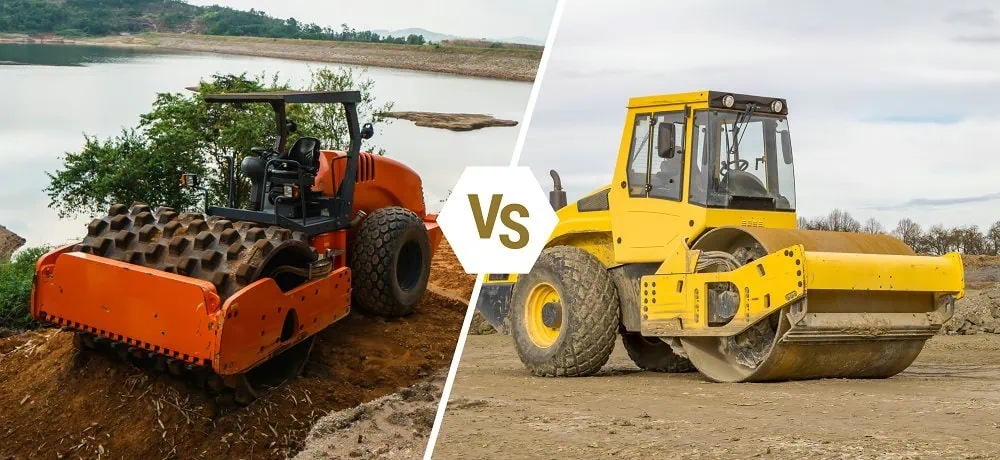
What Maintenance Tips Can Prolong a Second-Hand Roller’s Lifespan?
One, and this is especially true for used equipment, is maintenance. Once you buy your roller, you need to keep up on regular maintenance to get the longest life out of it. Be sure to do regular inspections to check for wear and tear. Keep all moving parts well-lubricated to cut down on wear from friction. Changing the filters on time is a must to keep the engine running well. Small issues can lead to big problems. Follow the manufacturer’s recommendations for oil changes, parts replacements, and system checks.
Finally, no matter what you’re doing, always check the manual and heed the advice of the people who created your equipment. They know best how to care of it. Also, how you store your roller can have a big effect on how long it lasts. Keep your roller in a dry and sheltered environment. Even with today’s weather-resilient coatings and materials, it’s best to give your expensive equipment a little protection.
How to Negotiate the Best Price for a Second-Hand Roller؟
How do you negotiate for a used roller? You can do it in much the same way you would negotiate for anything else. First, know what the average price is. Know where you should be buying. If in your research you have found a specific issue with the roller you would like to buy, you might be able to use that as a bargaining chip.
On the flip side, if you purchase multiple machines, you should be able to wheel and deal for a bundle price. Even when dealing with used equipment, you need to be willing to walk away. Sometimes just
the threat of that will make somebody start to get serious.
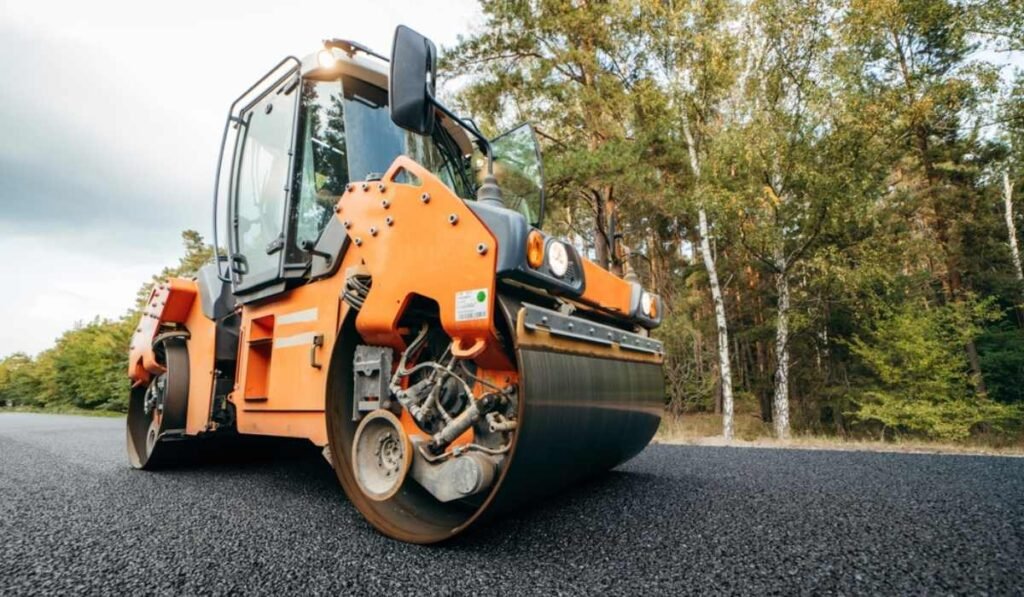
What Are the Common Applications for Second-Hand Rollers?
You can use a second-hand roller in a few different industries. Obviously, they come in pretty handy in road construction when it’s time to compact all that asphalt and soil for a nice smooth surface. Landscapers need rollers to smooth out gardens, parks, and other areas that need a level, elegant appearance. When it’s time to build the foundation for a new structure, rollers make sure the earth is just right for building on compacted, evenly compressed soil. Agriculture can use a roller to level out plowed fields and prepare them for seeding or the next crop. Not a bad tool to have in a lot of different sectors.
Rollers play an indispensable role in road construction, compacting asphalt layers to create smooth, durable surfaces. They are essential for achieving uniform density and eliminating air voids, ensuring roads withstand heavy traffic and adverse weather conditions. Whether used for highways, urban roads, or rural pathways, second-hand rollers are a reliable choice for cost-conscious contractors.
How to Identify Signs of Wear and Tear in a Used Roller?
You need to give the used roller a thorough inspection to look for any warning signs that may lead to unexpected breakdowns or expensive repairs. First, look at the drum. Is it cracked, dented, wavy, or looking weird? Any of these issues could limit the ability to properly compact material. Second, check out the hydraulic systems for leaks. Even a little leak could mean a big, expensive problem.
How do the tires or tracks look? Are they worn out, or do they have plenty of life left in them? The engine is the lifeblood of the machine. Listen to the engine. If it doesn’t sound right, there’s likely something wrong . . . something expensive. Also, is the vibratory unit working smoothly? If the vibratory action is weak, or if it doesn’t work at all, there might be some big dollar problems hiding inside. Finally, have a look at the frame and chassis.
Any rust there will not only weaken the structural integrity of the roller, but can cost you Refurbishment Dollars. By checking out all these areas thoroughly, you will be able to spot any red flags and use this information to negotiate lowering the price or insist that the seller fix an issue or two.

خاتمة
Buying a used roller is a smart investment, as long as you take it slowly and make sure you know what you’re getting yourself into. Knowing the advantages, disadvantages, and what to look out for allows you to get something you need at a cost far below retail. Find a reputable supplier, do your research, and you’ll be fine. For more information or professional advice, feel free to contact us.

